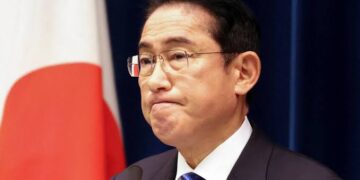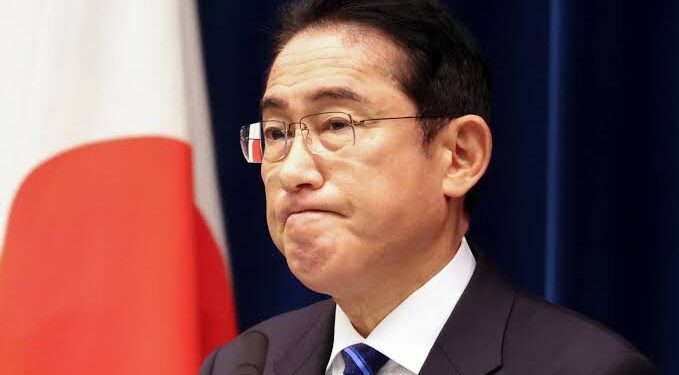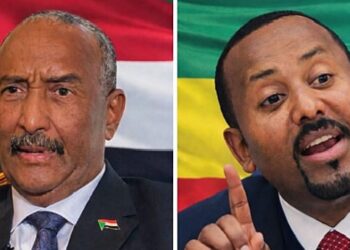By Lucy Adautin
Japanese Prime Minister Fumio Kishida announced on Wednesday that he will not seek re-election as the leader of his party, signaling the end of his tenure as prime minister.
“The clearest way to demonstrate that the LDP is ready for change is by stepping aside. I will not be a candidate in the upcoming (party) presidential election,” Kishida stated, referring to the ruling Liberal Democratic Party (LDP).
The LDP, which has dominated Japanese politics since 1945, is scheduled to hold a leadership election next month, with the winner set to become the next prime minister.
“In this (party) presidential election, it’s crucial to show the people that the LDP is evolving into a new party. To achieve this, transparent and open elections, along with free and vigorous debate, are essential. The first step toward this change is for me to step aside” Kishida emphasized during a press briefing in Tokyo.
Kishida, 67, has been in office since October 2021, but his popularity, along with that of his party, has plummeted due to rising inflation affecting Japanese incomes and multiple scandals.
In an attempt to salvage his premiership, he unveiled stimulus package worth 17 trillion yen (over $100 billion at the time) in November, to ease inflationary pressures. His popularity continued to decline both among voters in Japan and within his own party.
In addition to inflation, having been unfamiliar and unwelcome development for Japanese voters, the country’s economic growth struggled, shrinking by 0.7 % in first quarter of the year.
Although there has been some recovery in recent weeks, the yen remains one of the worst-performing currencies globally, benefiting exporters but increasing import costs.
He could have theoretically governed until 2025, with speculation he might call a snap election to strengthen his position. Many within the LDP feared poor electoral outcomes under Kishida’s leadership. The party had already lost three by-elections in April.
He survived a pipe-bomb attack last year and has been criticized for involving in major kickbacks scandal related to fundraising events.
During his time in office, he took a firm stance in support of Ukraine following Russia’s invasion, hosting President Volodymyr Zelensky at a G7 summit in Hiroshima and visiting Kyiv.
Under his leadership, Japan pledged to double its defense spending reaching NATO’s target of two percent of GDP by 2027, a significant shift from its post-war pacifism, encouraged by the United States as both countries face an increasingly assertive China.
In April, he was welcomed by US President Joe Biden at the White House, where the two nations announced a “new era” of cooperation.
In July, Japan signed a defense pact with the Philippines, allowing for troop deployments on each other’s territory.
At COP 28 in December last year, Kishida promised Japan would not build any new coal power plants that lacked emission reduction measures. However, critics argued that the required technologies, such as co-firing coal with ammonia or carbon capture and storage, were not yet proven on a large scale.




































